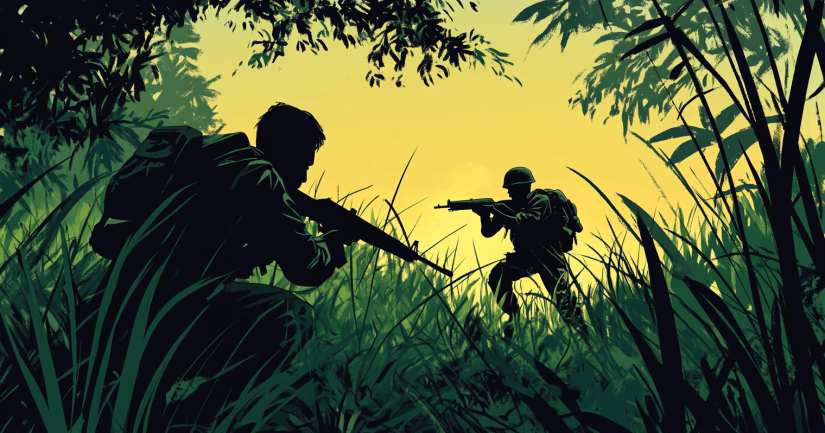
Test your knowledge of Chapter 13’s vivid details and themes in The Things They Carried Quiz. This chapter, rich with emotion and detail, offers a glimpse into the hearts and minds of soldiers during the Vietnam War. As you navigate through the questions, you’ll explore the burdens—both tangible and intangible—that these characters carry. Each question challenges you to delve deeper into the themes of courage, fear, and camaraderie.
In this quiz, you’ll uncover the significance of the items they hold dear and the memories they can’t escape. Feel the weight of their experiences and the impact of their choices. Through O’Brien’s masterful storytelling, you will gain insight into the complexities of war and its lasting effects on those who endure it. This quiz not only tests your knowledge but also invites reflection on the human condition.
Every chapter adds another layer to the story. Continue with The Things They Carried Chapter 14 Quiz, revisit the details from The Things They Carried Chapter 12 Quiz, or test your overall knowledge with The Things They Carried Full Book Quiz.
Engage with the text in a new way. Analyze the emotions and motivations of the characters. Discover how O’Brien’s narrative captures the essence of conflict and survival. Are you ready to carry the knowledge forward? Dive in and find out.The Things They Carried Quizzes: Explore Tim O’Brien’s Vietnam War stories …
What Happened – The Things They Carried Chapter 13 Quiz
In Chapter 13 of The Things They Carried, Norman Bowker drives around a lake in his hometown. It is the Fourth of July. He circles the lake several times in his father’s car. He thinks about the Vietnam War. He remembers his friend, Kiowa, who died in the war. Bowker recalls details about the day Kiowa died. The soldiers were camped in a field that turned into a swamp. Bowker tried to save Kiowa, but he couldn’t. He feels guilty about Kiowa’s death.
Bowker imagines telling his father about the war. He wants to explain what happened. He also wishes he could talk to his old girlfriend. As he drives, Bowker thinks about the medals he earned in the war. He believes the Silver Star is the most important medal he did not win. He thinks he could have won it if he had saved Kiowa.
Bowker stops at a drive-in restaurant. He orders a burger and a shake. He continues driving around the lake. He thinks about how the town has changed since he left for the war. Bowker feels disconnected from his surroundings. He parks his car and watches fireworks. He imagines conversations about the war but does not speak to anyone. Finally, he drives home as it gets dark.
The Things They Carried Chapter 13 – Quotes
- “I’m not dead. But when I am, it’s like… being inside a book that nobody’s reading.” – Norman Bowker, ‘Reflecting on his sense of invisibility and the struggle to communicate his war experiences.’
“How do you tell a true war story?” – Tim O’Brien, ‘Exploring the elusive nature of truth in war narratives.’
“Nobody’s fault. Everybody’s.” – Tim O’Brien, ‘Contemplating the shared responsibility and blame in war.’
“The town seemed remote somehow. Sally was married and Max was drowned and his father was at home watching baseball on national TV.” – Norman Bowker, ‘Feeling disconnected from his hometown and the life he left behind.’
“The war was over and there was no place in particular to go.” – Narrator, ‘Expressing the aimlessness and loss of purpose after returning from Vietnam.’
“I could have won the Silver Star.” – Norman Bowker, ‘Grappling with feelings of inadequacy and missed heroism.’
“It was a relief in a way, not to have to talk.” – Tim O’Brien, ‘Highlighting the difficulty of articulating war experiences to those who haven’t lived them.’
“She was the one thing that could make him happy.” – Narrator, ‘Bowker’s longing for Sally Kramer and the life he could have had.’
